As a society we are obsessed with killing germs and keeping our environment disinfected. We're even looking for our cutting boards, bibs, and high chairs to include some type of antibacterial protection and the government is hearing our cries.
According to the Environmental Working Group (EWG), as of July 2008 the federal government has approved the pesticide Triclosan for use in 140 different types of consumer products including liquid hand soap, toothpaste, undergarments and children's toys.
Don't get me wrong, I am all for keeping our homes and bodies clean but this need to kill germs is causing much larger problems for us. The following facts will help explain why:
- According to the World Health Organization, disinfectant and antibacterial products are resulting in stronger, more resistant bacteria. Triclosan kills most - but not all - of the bacteria it encounters. The germs that survive emerge stronger and harder to kill in the future. This can make normal household germs more resistant.
- The American Medical Association recommends that triclosan not be used in the home as it may encourage bacterial resistance to antibiotics.
- A 2002 Swedish study found high levels of triclosan in 3 out of 5 human breast milk samples.
- A study of over 200 healthy households found that households using antibacterial products did not have any reduced risk for runny noses, coughs, and other symptoms of infectious diseases.
- Researchers have raised concerns about triclosan and its link to dioxins, which are highly carcinogenic chemicals that can cause severe health problems such as: weakening of the immune system, decreased fertility, altered sex hormones, birth defects, and cancer.
- Girl Scouts in St. Paul, Minnesota found that when they tried to use triclosan to kill bacteria they were growing for a science fair project, the bacteria actually started growing.
- Triclosan, when washed down the drain, is making its way into our water system and is highly toxic to a number of different types of algae which are the primary producers in many aquatic ecosystems.
- When triclosan reacts with chlorine found in tap water, chloroform is produced. The Environmental Protection Agency classifies chloroform as a probable human carcinogen.
- Research suggests that normal water treatment procedures could convert triclosan into a toxic dioxin and the conversion can be triggered by strong sunlight.
- Triclosan bio accumulates or becomes concentrated in fatty tissue in humans and animals that are exposed to this chemical.
What can you do to make sure that your exposure to this hazardous chemical is limited?
- Watch for triclosan (and triclocarban, its chemical cousin) in personal care products. Read ingredient labels and use the Cosmetic Data Base to see which of your current personal care products contain triclosan.
- Switch your personal care products to those that are all natural and free of triclosan and other hazardous chemicals such as Young Living Essential Oils. Young Living offers many personal care products that include Skin Care, Hair care, Bath and Shower Products, Kids products and, Oral Hygiene. Click to see the entire essential oil based product line here. (then click on the Personal Care tab)
- Switch your antibacterial cleaning supplies for those that are considered natural and non-toxic such as Young Living's Thieves Essential Oil based Household Cleaner
Order Your Triclosan Free Personal Care Products Here.....
- Make your own antibacterial cleaning products using essential oils. Essential oils are the lifeblood of a plant and the oil serves as its own chemical defense against fungus and infection. When used outside of the plant the essential oil is a powerful antibacterial and in fact, has been used to neutralize germs as far back as 1887. Here is a great article from another Young Living independent distributor on house cleaning with essential oils.
- Forego antibacterial soap. Use Thieves Foaming Soap instead. Its made with the most potent antibacterial essential oils: clove, lemon, cinnamon bark, eucalyptus and rosemary.
- Avoid "Antibacterial" Products - these products may be labeled “antibacterial,” or make claims such as “odor-fighting” or “keeps food fresher, longer.” These products may be toys, bedding, bath accessories, and clothing. I think you will be surprised when you view the list of government approved products allowed to contain triclosan here. Shop for natural home items at Gaiam.com
and Acacia Catalog
.
If you have any questions regarding this information or would like help getting chemicals out of your life, contact me. I'd be happy to help.
Yours in Scentsible Wellness,
Elizabeth
Related information: Rub A Dub Dub....Is Cancer in Your Tub?

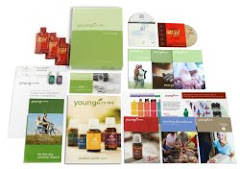





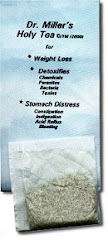
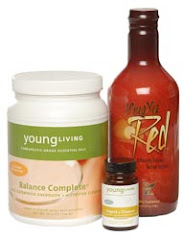

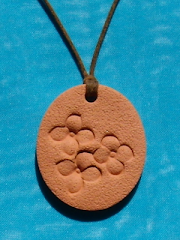
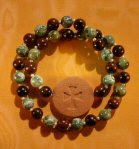


No comments:
Post a Comment